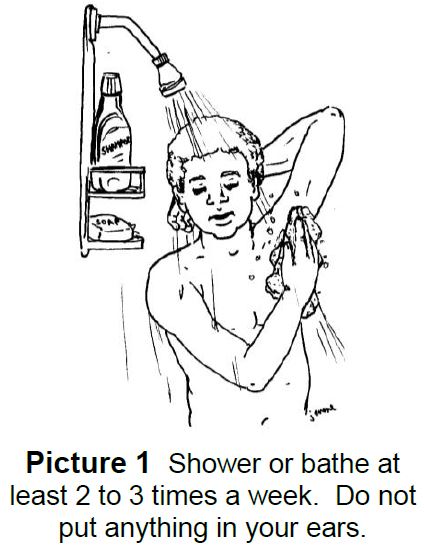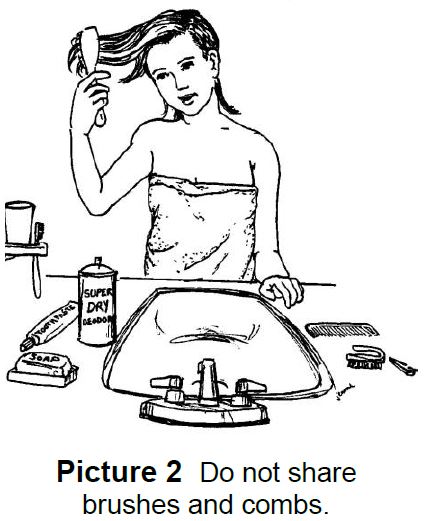Personal Hygiene
Primary Care Pediatrics
Looking for services or physicians who can help treat this condition?
![]()
Have you ever noticed how good you feel when you get all cleaned up and put on fresh, clean clothes? There is a reason for that good feeling. The body performs better when it is clean and healthy. Good personal hygiene should include clean skin and care of the mouth, teeth, hair, ears, hands, feet and nails.
Your Skin

The skin plays an important part in helping the body work properly. Your skin:
- Protects the tissue and organs inside your body
- Allows you to feel (touch, pain, itching)
- Lets your body absorb vitamin D, which is needed for strong, healthy bones
- Acts like a filter for your body. Your skin is your body's "armor." It keeps bacteria (germs) from getting into your body through the skin.
- Regulates body temperature. When you are hot, you perspire (sweat) through the pores in your skin. The sweat evaporates and cools your body. When you are cold, the skin tightens (contracts) and raises "goose bumps" to shut out the cold.
Washing
Your skin cannot do its job if it is dirty. Dirt, oils, sweat and bacteria need to be removed from the skin’s surface. The best way to clean your skin is to wash with mild soap and rinse well with warm water (Picture 1).
Clean your ears only when bathing. When done, use a towel to dab the ears dry. Do not put anything, such as cotton swabs, inside your ears.
Wash your hands often:
- After using the toilet
- After coughing, sneezing or blowing your nose
- Before meals or handling food
- After touching blood or any body fluid
For washing hands, lather up with soap for 20 seconds, the amount of time needed to sing the alphabet song. Then rinse well with running water. The longer you wash, the more germs will be washed away. If soap is not available, an alcohol-based hand sanitizer may be used.
People who are allergic to soaps and detergents may use cleansing creams. But creams do not remove oils and dirt as well as soap and water. If you are allergic to soap, ask your doctor or nurse for suggestions.
Special areas
Some areas of the body need special attention. Odors can build up:
- Under the arms
- Between the legs - genital and groin areas
- Between the toes
This is because bacteria get trapped in the oil and dirt on the surface of the skin. These germs can lead to body odor.
You can avoid bad odors by frequent bathing and using a deodorant or antiperspirant every day. Wearing clean socks, underwear and clothes can also help.
Girls should wipe from front to back after going to the toilet. They also need to make sure to change their tampons or sanitary napkins often during their menstrual periods.
Save That Smile

Regular cleaning of the teeth and mouth helps prevent tooth decay and gum disease. Use a soft-bristle toothbrush and fluoride toothpaste after meals and at bedtime.
Dental floss should also be used daily to keep plaque (plak) from forming and to keep the gums healthy. Plaque is a layer of harmful bacteria on the teeth that causes cavities.
Never Share What Touches Your Hair
Washing your hair 1 to 2 times a week is usually often enough, unless your hair is very oily. Then you may need to wash it more often. If you use mousse, styling gel or hair spray, you may find you need to wash your hair more often. Be sure to use only your own brush and comb (Picture 2). Sharing brushes can spread germs or head lice.
Nails – Fingers and Toes
It is important to keep fingernails and toenails clean and trimmed properly. Bath time is usually best for trimming and cleaning under the nails. Trim fingernails in a curved shape. Toenails should be cut straight across to prevent painful, ingrown toenails. All of these tips are helpful in keeping your body clean and you feeling and looking your best!
HH-IV-58 3/81, Revised 12/17 Copyright 1981, Nationwide Children’s Hospital
